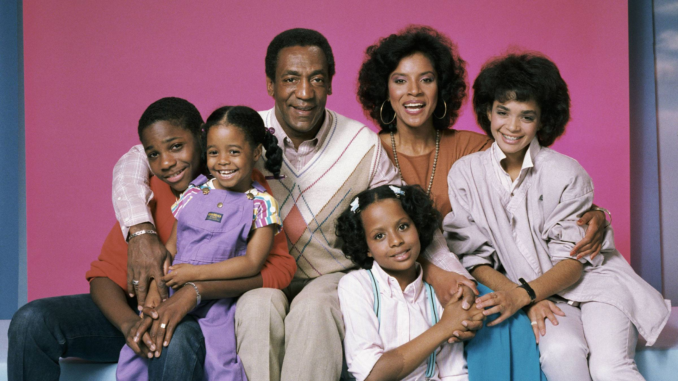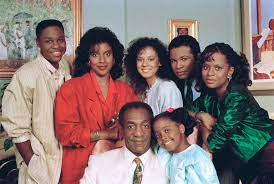
Introduction
Even decades after its initial broadcast, The Cosby Show continues to be regarded as one of the most influential sitcoms in television history. Debuting in 1984, it portrayed the Huxtable family, an affluent, educated African-American household, in a way that was groundbreaking for its time. The show’s impact on representation, culture, and society remains significant today, with ongoing discussions about its relevance, particularly in light of contemporary issues. Although the controversies surrounding Bill Cosby have certainly complicated the legacy of the show, The Cosby Show itself still holds a special place in the hearts of its fans, and its cultural influence is undeniable. In this article, we will examine the lasting impact of The Cosby Show on modern television, its role in advancing African-American representation, and how it continues to resonate with audiences in the 21st century.
The Show’s Revolutionary Portrayal of African-American Families
At its core, The Cosby Show was revolutionary in its portrayal of African-American families on mainstream television. In an era where Black characters were often relegated to roles of poverty, crime, or subservience, the Huxtables presented a different narrative: a professional, middle-class African-American family that not only had financial stability but also an admirable moral compass. Cliff Huxtable (Bill Cosby) was a successful doctor, and Clair Huxtable (Phylicia Rashad) was a lawyer, both highly educated and deeply involved in their children’s lives. This representation was a dramatic departure from the stereotypical portrayals of Black families at the time.
For African-American viewers, The Cosby Show was empowering. It showed that success and upward mobility were achievable for Black families through hard work and education. It normalized the idea that African-Americans could be part of the American mainstream and achieve the American Dream. For young Black viewers, seeing characters like Cliff and Clair Huxtable allowed them to imagine a future that included higher education, professional careers, and healthy family relationships. For the wider audience, the Huxtables provided an alternative perspective on what it meant to be Black in America, breaking down racial stereotypes in the process.

Shaping Modern Television: Diversity and Representation
The success of The Cosby Show was pivotal in opening doors for more diverse programming on television. The show proved that African-American characters could not only lead a primetime show but could also engage with universal themes that resonated with all demographics. The Huxtables, though a Black family, dealt with issues—parenting, education, love, and career—that were relatable to any family, regardless of race. This ability to blend cultural specificity with universal themes made the show appealing to viewers of all backgrounds.
The legacy of The Cosby Show can be seen in the programming landscape of today. Shows like A Different World, Living Single, and The Fresh Prince of Bel-Air all followed in its wake, continuing to explore the complexities of African-American life while challenging stereotypes. Furthermore, contemporary shows like Black-ish, Insecure, and This Is Us have also carried the torch, depicting Black families in a multifaceted and nuanced manner. The representation of African-American families on television is now more diverse than ever, thanks in part to the path that The Cosby Show paved.
Addressing Social Issues with Humor and Heart
What set The Cosby Show apart from many other sitcoms was its ability to address serious societal issues without losing its comedic essence. The show was more than just a family-friendly comedy; it tackled topics such as race, class, gender, education, and societal expectations. For instance, Cliff and Clair often took moments to discuss their children’s academic struggles, but these discussions were always framed with warmth and humor. This combination of humor and social consciousness was a hallmark of the show and contributed to its cultural relevance.
The series explored what it meant to be Black in America during the 1980s, with episodes dealing with topics like racism in the workplace, the challenges of balancing career and family, and the complexities of growing up in a multicultural society. However, it never did so in a preachy or overly heavy-handed manner. The show used humor to defuse potentially tense topics, making them accessible and engaging to a broad audience. This approach was groundbreaking and set the stage for other television shows to follow suit, using humor as a tool to discuss complex social issues.
The Show’s Enduring Influence in the Era of Streaming and Reruns
With the rise of streaming services, The Cosby Show has found new life for a whole new generation of viewers. Streaming platforms such as Hulu and Amazon Prime have made it easy for fans to revisit the Huxtables’ world, and new audiences are discovering the show’s charm and relevance. The show’s legacy endures because its themes—family, education, love, and ambition—are timeless.
Moreover, the series continues to be an essential part of television history, with many citing The Cosby Show as a pivotal moment in the evolution of African-American representation on screen. It is often used as a reference point when discussing the progress of Black actors and creators in Hollywood, serving as both a touchstone and a source of inspiration for those seeking to follow in the show’s footsteps.
The Controversy and the Question of Legacy
Despite its cultural significance, The Cosby Show has become complicated in the wake of Bill Cosby’s legal troubles. The allegations against Cosby, leading to his conviction for sexual assault, have cast a long shadow over the show’s legacy. Fans and critics alike have grappled with how to reconcile the show’s impact on African-American representation with the actions of its star.
For some, the ongoing debate centers around whether The Cosby Show can still be appreciated for its cultural achievements, or whether it should be entirely dismissed in light of Cosby’s crimes. This dilemma has sparked difficult conversations about separating an artist’s work from their personal life, a topic that has gained widespread attention in recent years. While some continue to revere the show for its groundbreaking portrayal of the Huxtable family, others argue that Cosby’s actions undermine the show’s positive cultural impact.
Conclusion
The Cosby Show is undoubtedly a landmark in the history of television, and its influence continues to be felt today. It broke barriers, reshaped how African-American families were portrayed on TV, and sparked conversations about race, class, and family dynamics that were—and still are—relevant in American society. While the controversies surrounding Bill Cosby have created a complicated legacy, The Cosby Show’s cultural relevance remains intact. It is a show that will continue to be remembered for its significant contributions to television, its depiction of Black families in a positive light, and its ability to tackle complex social issues with humor and heart.
As we move forward, it is crucial to acknowledge both the good and the bad when reflecting on The Cosby Show’s place in history. But even as its legacy remains in flux, there is no denying that the show changed the landscape of television forever, leaving an indelible mark on the entertainment industry and on the millions of people who tuned in to watch the Huxtables navigate life, love, and family.
These three articles together offer a comprehensive and professional look at the cultural, societal, and entertainment significance of The Cosby Show, its legacy, and the complexities surrounding its continued relevance today.
